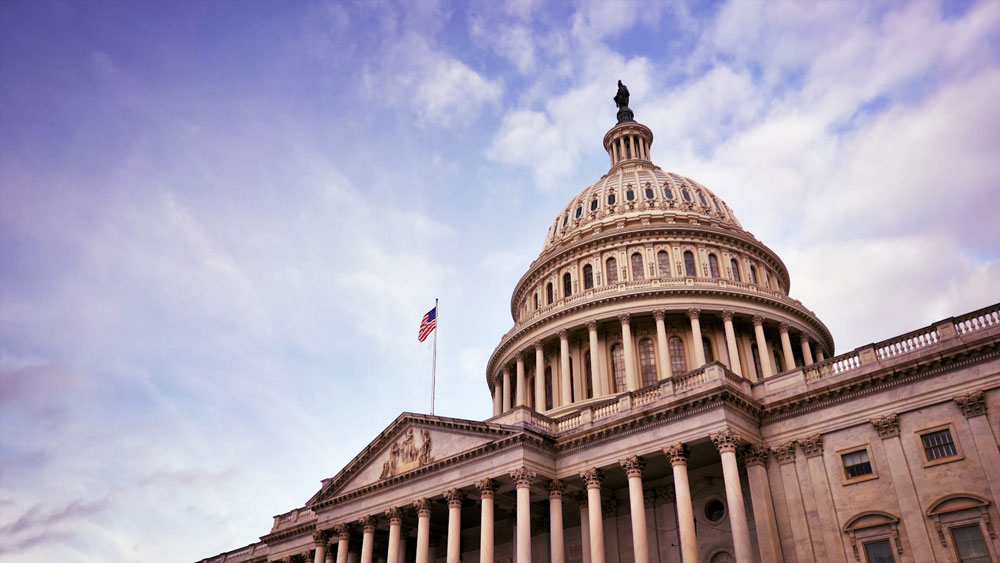
By Charlie Hunt
There’s no denying that the current Congress has been one of the most chaotic in recent memory. The paralysis in 2023 and 2024 over the selection of the speaker of the House helped lead to one of Congress’ most unproductive years in history.
And although House Speaker Mike Johnson, a Louisiana Republican, survived an effort on May 8, 2024, by far-right members of his conference to oust him, the attempt is a signal of the dysfunction in Congress. It’s also a prime example of why so few Americans have a favorable view of the job Congress is doing.
For many Americans, the solution to this dysfunction is clear: Institute limits on the number of terms members of Congress can serve. If voters use term limits to “throw the bums out” and replace them with a new crop of elected leaders, the reasoning goes, the result will be a more effective and perhaps less polarized Congress.
According to recent surveys, 80% or more of the American people are in favor of congressional term limits. You’d be hard pressed to find another policy that more Americans from both sides of the aisle agree on.
Yet there’s a problem: Most political scientists agree that term limits are a bad idea. The evidence suggests that term limits create more problems than they solve and could even accelerate the polarization that’s been hobbling Congress for over a decade.
The value of long incumbencies
Advocates of term limits often point to a striking statistic to support the reform: the consistently high reelection rates of congressional incumbents. Current members of Congress enjoy a strong advantage from their status as an elected representative – that is, more name recognition and campaign resources than their challengers. Advocates for term limits say they are necessary to cut long-term incumbents’ service short in favor of new blood.
But term limits, often set at eight years in state legislatures, undervalue the benefits of representatives who have been serving in office for a long time. These members have had more time to gain knowledge and experience about Congress as an institution; develop policy expertise in issues important to their districts; and cultivate working relationships with fellow members that help them make policy more effectively.
Data from the Center for Effective Lawmaking, a research center with the University of Virginia and Vanderbilt University, which tracks members’ success rates for legislation they sponsor, strongly supports this perspective: The longer members serve, the more effective a lawmaker they are likely to become.
Fresh perspectives in Congress are important, which is why the U.S. has elections. But term limits would stifle members’ lawmaking careers just as they’re getting off the ground. Even worse, losing well-seasoned members with issue expertise would leave inexperienced lawmakers vulnerable to influence from lobbyists and special interest groups that would highlight their own expertise and seek to influence legislation in their favor.
This is precisely what has happened in state legislatures that instituted term limits around the turn of the century.
Term limits don’t solve extremism
Term limits are also unlikely to make Congress less ideologically extreme.
Judging from statements they’ve made, many of the more tenured members who are retiring at the end of the current Congress are the ones lamenting extremism and partisanship, often citing these trends as the reason they’re leaving.
Meanwhile, many of the most polarizing and best-known representatives in Congress – think Georgia’s Marjorie Taylor Greene, a Republican; Matt Gaetz of Florida, also a Republican; and Democrat Ilhan Omar from Minnesota – are newer members with less apparent interest in compromise and achievement of long-term policy goals. The data reflects this: The average long-serving member of Congress nearly always has lower ideological extremism scores than the average congressional newcomer, based on roll call votes on policy issues.
Vast majorities of Americans say they prefer a Congress that compromises to get things done. Term limits would almost certainly fail to achieve this.

Hill Street Studios/Getty Images
Congressional ‘senioritis’
But this isn’t the only negative impact of term-limits reform.
Research by political scientist Gerald Wright suggests not only that term limits for state legislators were ineffective at reducing polarization, but that term-limited lawmakers – those legally prevented from running for reelection – tend to exert “decreased legislative effort” and missed roll call votes compared with their colleagues who are up for reelection.
In other words, members in their legally mandated final term in office enjoy a kind of “senioritis” – the apathy that can hit students in their last term of high school or college – in their legislatures because they don’t have to face the voters again at the ballot box.
Elections: The ultimate term limits
Most political scientists agree that high incumbent reelection rates are mainly the result of highly partisan districts and voters, not corrupt incumbents advantaged by years of service. The voters already have a say in primaries and general elections to vote out incumbents.
But they largely choose not to.
It is likely that very loose term limits – say, 20 years of service –could help prevent aging incumbents such as Mitch McConnell or the late Dianne Feinstein from serving well past their prime. But as a method for depolarizing Congress and making it effective again, the evidence is thin.![]()
![]()
Charlie Hunt is Assistant Professor of Political Science at Boise State University.





























Samuel L. Bronkowitz says
Interesting that the critics of term limits argue that it doesn’t solve systemwide issues like gerrymandering, which is 100% correct. Term limits don’t solve gerrymandering, because they aren’t the same thing. What a moronic article.
Pogo says
@Term limits
…throwing the baby out with the bath water.
Republicans have used them to purge institutional memory from government at every opportunity. Anarchists (Libertarians, and other fanatics and refugees from anything practical) cry the loudest of all for term limits, instead of supporting voting rights, campaign finance reforms, and election process, e g., ranked choice voting, reforms.
And here we all are.
Samuel L. Bronkowitz says
You aren’t going to get any of those reforms without getting rid of the people holding them back.
DaleL says
The US has a two time limit for the election of President (22nd Amendment). It is basically seen as a positive as it reduces the ability of a President to become essentially a dictator (President for life such as Vladimir Putin.).
From the story: “The voters already have a say in primaries and general elections to vote out incumbents.” That is pretty much false. Incumbents have huge advantages in both the primary and general election. As a result, unless a Representative, Senator, or President is extraordinarily bad, they get reelected. The Florida Democratic Party did not even bother to have a presidential primary this year.
It is a false narrative to rate the effectiveness of a legislator on how many bills they get passed. Raw number counts without any assessment of the quality of the legislation is a bogus measurement.
Term limits are perhaps the wrong remedy for the real problem. The real problem is the hubris of old people, mostly men, who refuse to retire. For example, Chuck Grassley is 90 years old. He has been a senator since 1981. He’s running for reelection.
Pogo says
@DaleL
Exactly. 👍
Edith Campins says
Well, the current system isn’t working. Congress if full of old white men, out of touch with reality. Let’s give term limits a chance. And while we are at it, let’s do term limits for the Supreme Court. I am not sure how much longer the rule of law will survive with the current, corrupt court.
Endless Dark Money says
Term limits would be a start, otherwise you get stuck with someone like moscow mitch who blocked any help for americans for so long they now need entirely new programs from the decades of sabotage.
Samuel says
“Term limits”. I see that in comment sections, left and right. Curious. And it makes as much sense as “Quarterly yellow”.
To my understanding, term limits require an amendment to The US Constitution. Meaning, the elected Senators, Congresscritturs would have to vote themselves out of a six figure salary, travel, housing allowance, franking privileges, prestige and 100% medical and dental.
Really? Vote themselves out of a job like that? Would you? Be honest.
And let’s say it happens. Like magic.
What are you going to do about the Lobbyists? More magical thinking? Thoughts and prayers? Do you want your heart surgeon to be limited in experience? The pilot flying your airliner?
How about this. You want term limits. Fine. Quit voting for the same ilk over and over again. Boom. Instant term limits.
Sherry says
@ Samuel. . . you hit the nail on the head. The same people that benefit from “unlimited” stays in office are the ones who would “control” the process of amending the constitution. The fox is truly guarding the hen house in our corrupt government. . . at all levels. Perhaps the even more “corrupting” issue is $$$$! Money from lobbyists, money from “campaign contributions”. . . and, that only accounts for the “legal” bribery!
However, the MAGA cult is not planning to reform the system either. They just blame everything on the Democrats. . . while they hold on to that corrupt power even till their dying breath.
Perhaps a mandatory retirement age would be a better avenue. . . but, I don’t see that happening either. . . . for the same reasons. “Absolute Power Corrupts Absolutely”!!!
Larry says
You are wrong about term limits. Period!
You wrote:
“You’d be hard pressed to find another policy that more Americans from both sides of the aisle agree on.”
Actually gun regulations is another 80% of the population agree on. Also Universal Healthcare is a close contender.
This article just shows how not everyone that can post an article knows what the hell they’re talking about.